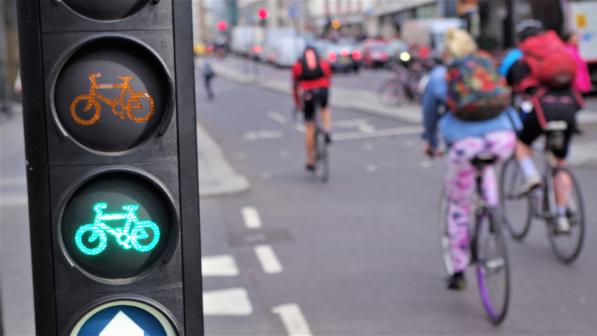MP calls for greater use of driving bans

Susan Elan Jones used a parliamentary debate in Westminster last night to call for greater use of driving disqualifications and action to close the 'exceptional hardship' loophole, which allows convicted drivers to flout the law to avoid a driving ban: exactly what Cycling UK argued for in its consultation response to the Government’s recent Cycling and Walking Safety Review.
Elan Jones, the Labour MP for Clwyd South, highlighted particular concerns about excessive speeding on single carriageway rural roads leading to only short driving bans for the drivers, despite them posing a clear risk to the safety and lives of others. Pointing to one case in which a driver travelling at 122 miles per hour was banned for less than two months, Elan Jones then questioned the risk such drivers present to others once back on the road, something she'd previously raised unsuccessfully with the Government..
Susan Elan Jones MP said "Last year I submitted a written parliamentary question to ask the Ministry of Justice how many drivers who have been subject to a driving ban go on to commit further driving offences after their ban has expired. I am concerned that the Department’s response was that it does not hold such data."
Elan Jones also raised her concerns about the 'exceptional hardship’ loophole, which enables drivers to retain their licence after accumulating 12 or more points in certain circumstances. She referred to figures publicised by Cycling UK about the number of drivers with more than 12 penalty points on their licence, before calling for automatic bans for those who accrue 12 points of more on the basis that they have "in my view and that of many others, been given ample opportunity to comply with the law. They have instead shown a repeated disregard for driving safely and legally. I believe that they should not be allowed to continually flout the law and face little more than a fine."
In January 2017, according to Cycling UK, almost 10,000 drivers were still allowed to drive even though they had amassed 12 points or more on their licence, and that is despite the fact that those who accumulate that many points should automatically face disqualification from driving.
Susan Elan Jones MP
This echoes Cycling UK’s response to the Government's Cycling and Walking Safety Review, in which Cycling UK called for greater use of disqualification to protect the public from dangerous behaviour on our roads and emphasised that public safety should come before the perceived inconvenience caused by a driving ban. Cycling UK’s submissions highlighted the need for “a legislative signal that driving is not an entitlement, but merely a revocable privilege; and that licence to do so should be removed for public protection where driving falls below the required standard.”
Setting out her strongly held belief that collisions and road traffic accidents are not inevitable and that we should not accept them as such, Elan Jones said that "Cycling UK has stated that whereas society expects high safety standards in various aspects of our lives in which there are inherent risks, there sometimes seems to be a different culture on the roads,.I agree with its calls for greater use of lengthy driving bans, both as a penalty and in order to protect the public."
Responding to Elan Jones, Parliamentary Under-Secretary for the Department for Transport Nusrat Ghani stated that road safety was a top priority for Government, accepted that road deaths are not an inevitable consequence of road transport, and said that "I share the hon. Lady’s concern that people who drive at appalling speeds, risking the lives of others as well as their own, are too often back behind the wheel too soon“. But stating that sentencing was a matter for the courts, Ghani maintained that this was not something on which Government could intervene.
Duncan Dollimore, Head of Campaigns at Cycling UK said that "This debate should embarrass the Government.. Not for the first time, serious concerns have been raised about the inadequate use of disqualification powers and the implications this has for road safety, but yet again the response from Government is that they can't do anything. Yes they can. They can change the law and impose minimum disqualification periods, remove the exceptional hardship loophole, require more mandatory re-testing following disqualifications and introduce a range of measures through legislation, all of which have been repeatedly suggested by various road safety organisations including Cycling UK.
"Five years ago the Government promised to review sentencing in road traffic cases, which would have included a review of disqualification powers had they proceeded, but we're still waiting. Rather than passing the parcel and saying sentencing is nothing to do with them, the Government should take action and move this issue up their agenda, setting aside some legislative time for their long promised and way overdue review of road traffic offences and penalties."

